We woke at 7:00 on Sunday morning and donned our nicest shirts, ties and dresses and headed off to church. Meeting us at the church would be all of the VIP Senior Staff, as well as several VIP community workers. Liz had been invited by the pastor of the church to preach in front of our team and the full congregation that morning, and our impromptu choir, which had assembled and practiced for the first and only time together less than a half hour before in the parking lot, had been asked to perform a song. Liz had told us that this week’s service would be shorter than last week’s nearly four and a half hour marathon, and she was right, though not by much. Church in Malawi is very interesting, full of dancing, singing, clapping and praying. Pounding drums and louds whoops might be replaced a moment later by minutes of deafening silence as the congregation bows their heads in silent prayer. Several VIP personnel took part in the services along with Liz, including Maxwell Muhiwa, the VIP Officer for Education and Vocational Skills.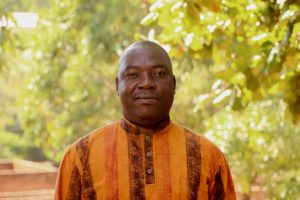 Maxwell took charge of the Sunday School students, which tickled Jim Garst to no end, when he discovered that Muhiwa had no connection with the church, but had just taken it upon himself to quiz the students and then lead them in a rousing edition of “Do As I Do” a more musical version of “Simon Says.” He the led the church in a rousing, and rather moving, rendition of “Kumbaya,” which we sang for hours afterwards after hearing it reawakened earlier memories of singing it with our schools, churches and friends.
Maxwell took charge of the Sunday School students, which tickled Jim Garst to no end, when he discovered that Muhiwa had no connection with the church, but had just taken it upon himself to quiz the students and then lead them in a rousing edition of “Do As I Do” a more musical version of “Simon Says.” He the led the church in a rousing, and rather moving, rendition of “Kumbaya,” which we sang for hours afterwards after hearing it reawakened earlier memories of singing it with our schools, churches and friends.
Another VIP musical highlight was the VIP choir, due in large part to Mada, our Medical Officer. Mada has a beautiful, strong voice that immediately commands a room. Often times when we show up to a field to work with local villagers, Mada will break out in song, and within moments the entire group of villagers will be singing along with her. Mada led us in an old Chichewa hymn and our entire team, including me, much to my surprise and dismay (I had been in choir once but had gotten by largely through lip syncing in the back row after not being allowed to quit), backed up her lead vocals. Despite the mixed talent of the group at large, Mada, and a few other musical souls, pulled us through and we received a nice ovation from the congregation.
But the real highlight of the morning was Liz’s sermon, translated, and at times embellished, by Daniel Bonongwe. Bonongwe was VIP’s first employee, hired all the way back in 2009. When reflecting on how far we have come, Liz will often say “I remember when all we had was Bonongwe on a bicycle.” Bonongwe is perhaps VIP’s most interesting personality. Loud, charismatic, personable and passionate with two front teeth that jut out prominently from his mouth, Bonongwe is most comfortable in the spotlight.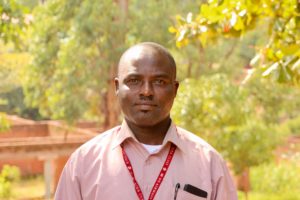 Whether he is ululating loudly in celebration, doing some kind of bizarre dance that can best be described as Elaine Benes’s “dancing” from Seinfeld crossed with a goat kicking back its hind legs, or simply speaking, Bonongwe always seems to draw a crowd. Sunday was no different. While translating Liz’s sermon into Chichewa he would scream at the top of his lungs, gesticulating wildly and acting out the scene described by Liz, with wild eyes staring past the congregation into the distance, focused on something the rest of us could not see. As the sermon went on Bonongwe, now dripping with sweat from his performance, would add his own comments on to his translation, often ending with a loud “Hallelujah” to which the congregation would chant back “Amen.” Isaac Mwalabu leaned over to tell me that this is how preacher’s often delivered sermons in Malawi. Both to impress upon the flock the seriousness of God’s wrath, and to keep their attention through the long hours spent in uncomfortable pews, I supposed. Whatever his intentions, it was provocative and exciting theater and the congregation remained deeply engaged with him and Liz throughout the sermon and gave them both a standing ovation when they had finished.
Whether he is ululating loudly in celebration, doing some kind of bizarre dance that can best be described as Elaine Benes’s “dancing” from Seinfeld crossed with a goat kicking back its hind legs, or simply speaking, Bonongwe always seems to draw a crowd. Sunday was no different. While translating Liz’s sermon into Chichewa he would scream at the top of his lungs, gesticulating wildly and acting out the scene described by Liz, with wild eyes staring past the congregation into the distance, focused on something the rest of us could not see. As the sermon went on Bonongwe, now dripping with sweat from his performance, would add his own comments on to his translation, often ending with a loud “Hallelujah” to which the congregation would chant back “Amen.” Isaac Mwalabu leaned over to tell me that this is how preacher’s often delivered sermons in Malawi. Both to impress upon the flock the seriousness of God’s wrath, and to keep their attention through the long hours spent in uncomfortable pews, I supposed. Whatever his intentions, it was provocative and exciting theater and the congregation remained deeply engaged with him and Liz throughout the sermon and gave them both a standing ovation when they had finished.
After giving several gifts to the church and being generously treated to sodas and snacks, the team headed off for home visits. Every friendship team goes on home visits, bringing gifts for, and spending time with, some of the most vulnerable families in our catchment area. It is, in many ways, the most important part of every friendship trip. An opportunity for our team to talk to, get to know and step inside the homes of some of the world’s poorest people and to let them know that they are not forgotten and that we are telling their stories and working to help them back in America. The first family that we visited was the family of Judith Phimba.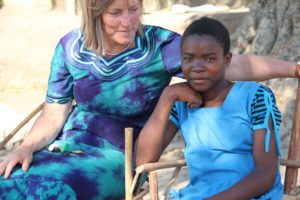 Judith is a 14 year old girl who first came to the attention of VIP when she won an inter-school quiz competition several years ago. It was then that we learned that Judith’s father had died when she was just five years old. Her mother then passed away a year later. Following the tragic death of her parents, Judith went to live with her elderly grandparents, who have cared for her ever since. The grandparents are the sole caretakers for several other orphans in the family as well, a job that grows harder and harder every year, as age takes it slow but inexorable toll on their bodies. When we first met Judith our staff realized how much promise she had and kept an eye on her as she moved through primary school. When she graduated from primary school and did well on her examinations, VIP supplied her with a scholarship so that she could attend Neno Girls Secondary School, over 60 miles from her home.
Judith is a 14 year old girl who first came to the attention of VIP when she won an inter-school quiz competition several years ago. It was then that we learned that Judith’s father had died when she was just five years old. Her mother then passed away a year later. Following the tragic death of her parents, Judith went to live with her elderly grandparents, who have cared for her ever since. The grandparents are the sole caretakers for several other orphans in the family as well, a job that grows harder and harder every year, as age takes it slow but inexorable toll on their bodies. When we first met Judith our staff realized how much promise she had and kept an eye on her as she moved through primary school. When she graduated from primary school and did well on her examinations, VIP supplied her with a scholarship so that she could attend Neno Girls Secondary School, over 60 miles from her home.
When we came to the home of her grandparents they told us that Judith was still away at school, but that term would be ending in a few weeks, at which point she would return. We chatted with Judith’s grandparents for a while and listened as they told us about how VIP had driven them to Judith’s school for a surprise visit a few months ago. When she saw them Judith ran over and embraced them both, with tears in her eyes, a rare show of emotion from an extremely shy and retiring young girl. But it showed her grandparents how much she missed them, and how much she appreciated everything that they had done for her. Our team gave Judith’s grandparents the gifts that they had brought for every vulnerable family that we would visit: blankets, clothes, sandals, soap and toothbrushes and toothpaste, to help ease the burden of their terrible poverty.
After our visit with Judith’s family the team split up so we could visit six more vulnerable families. Tom, Susan, Jim, Jennie and Liz visited with an elderly brother and sister who Liz (who is not prone to hyperbole when discussing poverty) unhesitatingly called “the poorest family I have ever visited.” When our team arrived at the small cluster of thatched-roof buildings that makes up the family compound they found the brother and sister waiting for them on the ground. Thatched roofs are always a sign of deep poverty, because even when they are in good condition, they inevitably leak during the rainy season. These roofs were not in good condition. They had large holes in them, which allowed the sun to stream into the homes. In the rainy season their dirt floors must have been filled with muddy puddles.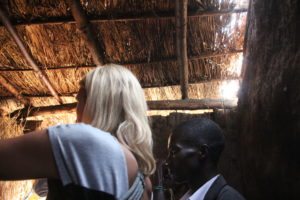 After greetings and introductions the brother told the team that he used to live in what was once the kitchen, a small building that had no roof at all, leaving him completely exposed to the elements. Now he lived in a small two room mud hut built by Malawian 7th graders as a service project for their country’s most vulnerable citizens. When he invited the team inside they found two tiny 6 by 3 foot rooms. One was a kitchen where he now did all of his cooking over an open fire, breathing in the smoke and fumes. In the other room they found his bedroom, which was nothing but wads of extremely soiled blankets, or as Jim Garst put it, “a nest of rags.” As our team continued to talk with the siblings, they learned that they no longer grew any food, they were too old and sick to work in the fields. Nor were they able to do anything to generate any income. They were entirely dependent on assistance from the World Food Program and other food relief agencies.
After greetings and introductions the brother told the team that he used to live in what was once the kitchen, a small building that had no roof at all, leaving him completely exposed to the elements. Now he lived in a small two room mud hut built by Malawian 7th graders as a service project for their country’s most vulnerable citizens. When he invited the team inside they found two tiny 6 by 3 foot rooms. One was a kitchen where he now did all of his cooking over an open fire, breathing in the smoke and fumes. In the other room they found his bedroom, which was nothing but wads of extremely soiled blankets, or as Jim Garst put it, “a nest of rags.” As our team continued to talk with the siblings, they learned that they no longer grew any food, they were too old and sick to work in the fields. Nor were they able to do anything to generate any income. They were entirely dependent on assistance from the World Food Program and other food relief agencies.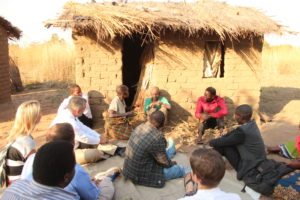 The sister’s face was so deeply lined and wrinkled with age and cares that she had to use her thumb and pointer fingers to lift the skin away from her eyes so that she could see who she was talking to. When our team gave them their gifts the brother and sister were so grateful, not just to be given all new things, but for the affirmation the gifts carried: that they mattered and that people cared about them and were willing to work with them and help them.
The sister’s face was so deeply lined and wrinkled with age and cares that she had to use her thumb and pointer fingers to lift the skin away from her eyes so that she could see who she was talking to. When our team gave them their gifts the brother and sister were so grateful, not just to be given all new things, but for the affirmation the gifts carried: that they mattered and that people cared about them and were willing to work with them and help them.
The same team then went to visit Alice Satana and her family. Alice is a tiny firecracker of a woman, quick to laugh and to speak her mind, often shouting over the questions of our team members in her haste to answer. As our team sat down on the mat outside Alice’s home, and greeted Alice and her family members, they saw fleas jumping all around them. Alice didn’t know how old she was, but her adult children and deeply lined face spoke of a long life of poverty in the villages.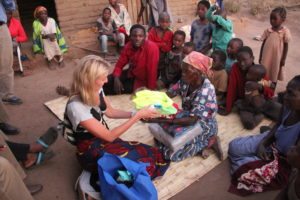 Alice told the team that she never grew enough food to feed her family, and that in order to get enough food to eat she often went to the rice mill that VIP had built and picked up little grains of rice off the floor, until she had enough for that night’s dinner. When Liz had visited Alice in March she learned that Alice’s daughter had gone missing, leaving behind her two young children. When Liz asked if there was any news of her, Alice pointed to a woman who had been sitting far away from everyone, just beyond the outskirts of the conversation. Alice called her forward and introduced her as her daughter. Alice’s daughter avoided everyone’s eyes and sat there, with downcast eyes, umoving and unresponsive. It soon became clear to Liz from what Alice was saying, that her daughter had left the family to try to earn money by selling her body as a prostitute. No one on our team would comment on that decision after they returned from the villages later that night. The decision between gleaning rice piece by piece off of the floor in order to eat and becoming a prostitute to feed your family was what a former professor of mine, who taught a class on the decisions facing Holocaust victims, would have termed a “choiceless choice.” A choice beyond judgement, that we could never understand and simply pray we will never be forced to make.
Alice told the team that she never grew enough food to feed her family, and that in order to get enough food to eat she often went to the rice mill that VIP had built and picked up little grains of rice off the floor, until she had enough for that night’s dinner. When Liz had visited Alice in March she learned that Alice’s daughter had gone missing, leaving behind her two young children. When Liz asked if there was any news of her, Alice pointed to a woman who had been sitting far away from everyone, just beyond the outskirts of the conversation. Alice called her forward and introduced her as her daughter. Alice’s daughter avoided everyone’s eyes and sat there, with downcast eyes, umoving and unresponsive. It soon became clear to Liz from what Alice was saying, that her daughter had left the family to try to earn money by selling her body as a prostitute. No one on our team would comment on that decision after they returned from the villages later that night. The decision between gleaning rice piece by piece off of the floor in order to eat and becoming a prostitute to feed your family was what a former professor of mine, who taught a class on the decisions facing Holocaust victims, would have termed a “choiceless choice.” A choice beyond judgement, that we could never understand and simply pray we will never be forced to make.
As our team headed back from the villages they were somber, but motivated. They understood at last why they had come to Malawi. They had not come to build bridges, or plant crops, or clear fields. The Malawians can do all of those things more effectively than we can with the tools that we have at hand. Our team had come to learn. To truly understand and confront what extreme poverty was, face to face, and to be motivated to do something about it. By the time the team reached N’amangazi Farm they were already planning what they would do when they went home, in order to continue to partner with the people of Malawi.

Leave a Reply